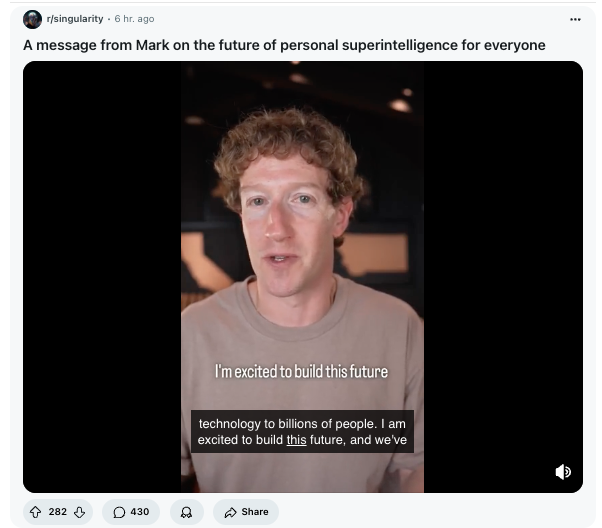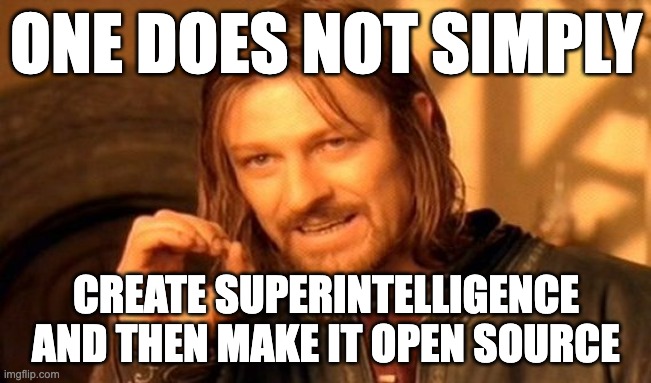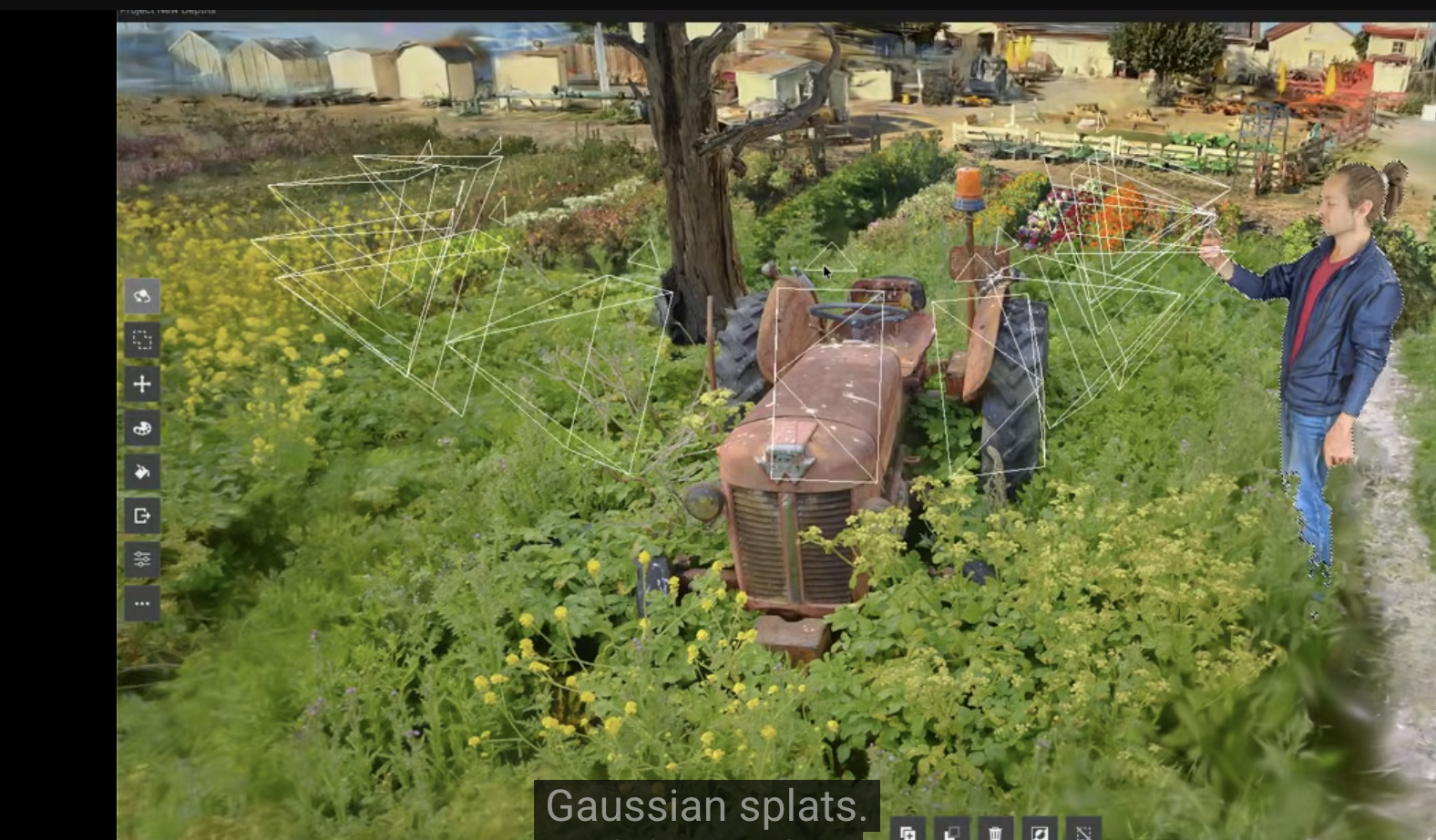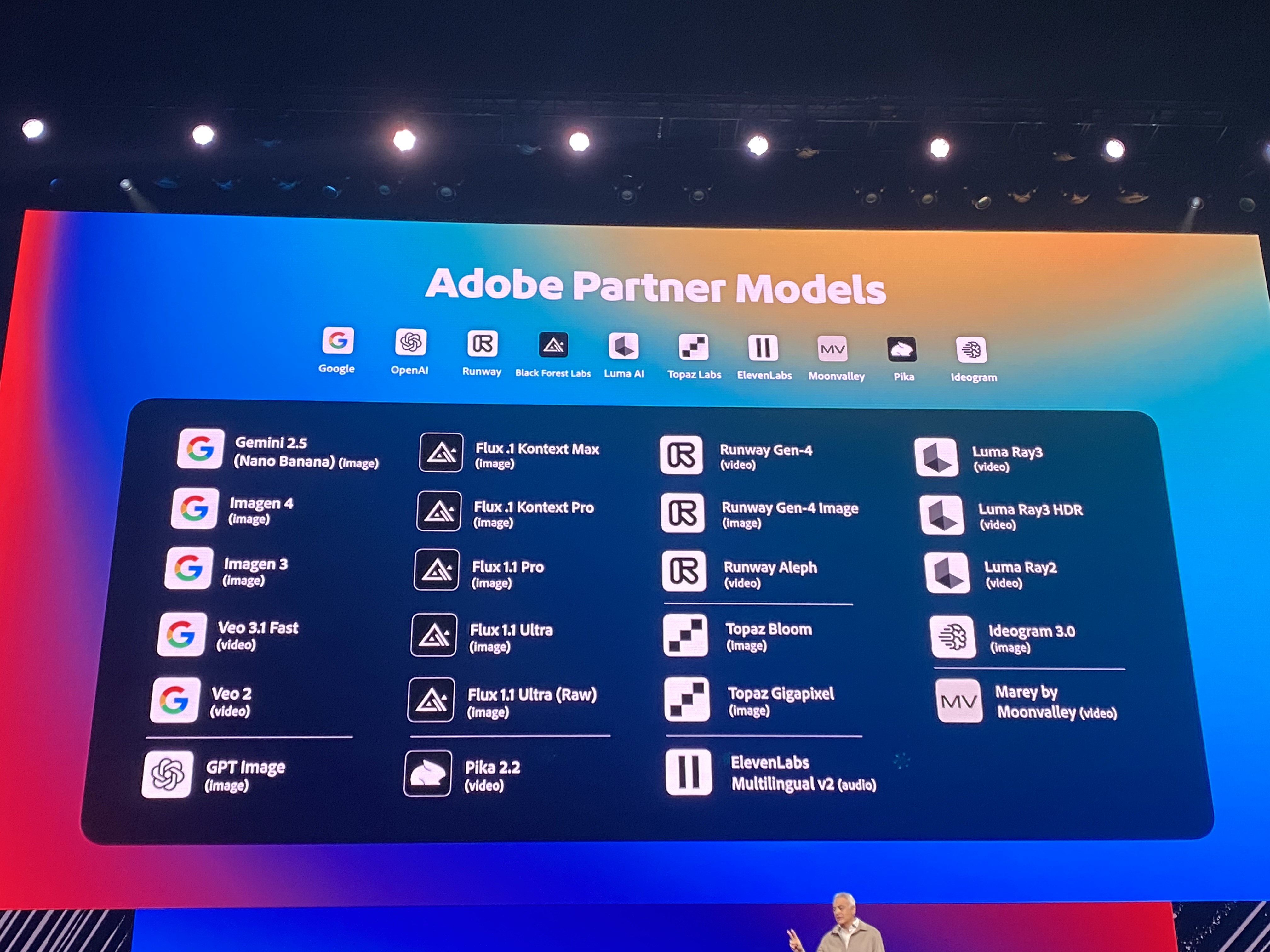Good ole Marky Mark over at Meta just pitched his vision for "personal superintelligence": AI that'll be built specifically for people's personal lives, not their productivity software.

Mark's basically betting on a world where we spend less time working and more time creating or chatting with our AI powered glasses.
TBH, he's probably not wrong about that…
We here at The Neuron think the #1 most positive thing AI will be able to do for us in the future, without question, is get us away from sitting at desks all day staring at screens.
But what does that mean for Facebook, and Instagram?
After all, if we're not glued to our phones scrolling Instagram, how does Meta make money?
The $47.5 Billion Irony
Here's the wild part: While Zuck's dreaming about getting us off our screens, Meta's current AI is doing the exact opposite—and printing money in the process.
The Q2 earnings call revealed some eye-popping numbers:
- Instagram video time shot up 20%+ year-over-year.
- Better AI content matching saw time spent on Facebook increase by 5%, and Instagram increase 6%—just this quarter.
- AI-powered ad improvements drove 5% more conversions on Instagram, 3% on Facebook.
- Revenue hit $47.5 billion (up 22% YoY), with ads doing most of the heavy lifting.

Apparently, Meta's AI ranking systems are so good at showing us content we can't resist that "more than two-thirds of Instagram's recommended content in the U.S. is now original posts"—meaning Reels isn't just recycled TikToks anymore. It's becoming a legitimate TikTok competitor.
How do they do this? In part, by optimizing for our interest in the exact moment we're using the app. This is powerful stuff; the better AI gets at giving us what we want, when we want it, without giving us things we DON'T want when we're focused on something else, the longer we'll engage.
The company's even rolling out AI tools that let advertisers generate videos, translate captions into 10 languages, and create campaigns that basically optimize themselves. Nearly 2 million advertisers are already using these features, and seemingly they're working, because said advertisers keep buying ads.
So right now, "regular" AI is Meta's cash cow... and its keeping us glued to our feeds longer than ever.
The $72 Billion Plot Twist
Now, here's where it gets spicy: Meta's planning to spend up to $72 billion on "superintelligence" infrastructure in 2025—that's a $30 billion increase from this year. And they're not stopping there. CFO Susan Li basically said "buckle up, we're doing this again in 2026."
As we've shared before, they're building massive AI clusters with names straight out of Greek mythology:
- Prometheus in Ohio: Coming online in 2026 as the world's first gigawatt+ cluster.
- Hyperion in Louisiana: Could scale to 5 gigawatts (Manhattan-sized footprint, btw).
- Plus "multiple more Titan clusters" they haven't even named yet.
All those data centers aren't just to make Facebook's algorithms better. Why do you think the Zuck is laying down Scrooge McDuck-sized compensation packages to poach AI researchers from all the big AI companies? He's trying to YOLO his way to Superintelligence. Which brings us back to his original pitch.
WTF is "Personal Superintelligence" Anyway?
Breaking down Zuckerberg's vision for "personal superintelligence," here's what he's actually describing:
What it does:
- Helps you achieve your personal goals.
- Lets you "create what you want to see in the world."
- Enables you to "experience any adventure."
- Makes you "a better friend to those you care about."
- Helps you "grow to become the person you aspire to be."
How it works:
- AI glasses that see what you see and hear what you hear.
- Interacts with you throughout the day as your "primary computing device."
- "Knows us deeply" and "understands our goals."
- AI systems that can improve themselves (he says they're already seeing "glimpses" of this).
In practicality, this would probably work like a local router that interfaces with whatever cloud models, services, and agents you run on a day to day basis to help live your life; like an always on secretary, coordinating between all these various feeds and inputs. That's us drawing some of our own conclusions, though.
The bigger philosophy:
- Individual empowerment vs. centralized automation.
- Against the model where AI does all the work and "everyone lives on a dole of its output" (this is a direct shot at Sam and Dario).
- Less time in productivity software, more time "creating and connecting."
- Continuation of the historical trend where technology frees people from survival tasks so they can pursue what they actually want.
That last point sounds pretty good to us, NGL...
What makes it different from competitors:
- Others are building AI to "automate all valuable work" centrally.
- Meta wants to put superintelligence power directly in individual hands.
- Focus on amplifying human aspirations rather than replacing humans.
The key insight: He's essentially describing a hyper-personalized AI assistant that lives in your glasses, knows everything about you, and helps you become the best version of yourself—rather than an AI that just does your job for you.
It's ambitious as all get out, but also pretty vague on the actual mechanics. The closest real-world example might be if Siri could see through your eyes, had perfect memory of your life, and was 100x smarter at helping you achieve whatever you wanted.
Now, Mark's "power to the people" messaging would all check out fine and good with how Meta used to do AI development (a.k.a releasing all of its models open source; arguably, they set the standard for open source releases, and the industry owes them a HUGE debt of gratitude for that).
But one does not simply create superintelligence and make it open source (and Mark has hinted as such)...

Since there's a chance not everything will be open and local (because how could it be??), there's still going to be some element of centralized AI at play here. And if you check the Reddit comments on Mark's pitch, a lot of folks don't trust Meta with their data now, so it's hard to imagine they'll trust Meta with their data when they're literally streaming their entire life all the time via smart glasses. Then again, folks on Reddit are likely not FB and IG stans, hence them being on Reddit. i
Speaking of glasses...
The Glasses-Shaped Elephant in the Room
As reported by TechCrunch's Sarah Perez, during the earnings call, Zuck dropped this beauty: "I think in the future, if you don't have glasses that have AI — or some way to interact with AI — I think you're … probably [going to] be at a pretty significant cognitive disadvantage compared to other people."
He's basically saying not having AI glasses will be like showing up to a gun fight with a butter knife. Except instead of a duel, it's an all out, knock down, drag out 24/7 brawl vis-a-vis the Running Man because it's your life all the time wherever you go.
As reported, Ray-Ban Meta glasses are already seeing sales 3x year-over-year (proof that a significant cohort doesn't care about Mark's stewardship over their data). Also, Meta AI previousl reported having a billion monthly users, and estimated 3.4B people across FB, Instagram, Messenger, and WhatsApp used it daily.
So yeah, Zuck's convinced that "glasses are basically going to be the ideal form factor for AI because you can let an AI see what you see throughout the day, hear what you hear, talk to you." And having that advantage will dramatically speed up your day and improve your life...so much so that it could be seen as an advantage against those who hold out or can't access it.
What Social Media Looks Like Through Glasses
But what does this actually mean for Facebook and Instagram? We see a few possibilities:
Option 1: The Ambient Feed - Imagine viral shorts playing softly in your peripheral vision, like a heads-up display you can ignore or engage with via eye gestures. Swipe right with your eyes to save for later, look away to dismiss.
Option 2: The AI Curator - Your personal AI agent becomes your feed, occasionally whispering "Hey, your friend just posted something hilarious" or showing you a perfectly-timed meme when you're waiting for coffee.
Option 3: The Living Room - Social becomes spatial. Instead of scrolling through videos, you pop into live, always-on video hangouts with friends. Think Discord voice channels but for your entire visual field—hop in and out of your friends' "rooms" whenever you're bored.
Whatever form it takes, Meta will need to build an entirely new platform from the ground up. You can't just port Instagram to AR—that's like trying to put a website on a smartwatch. The whole interaction model needs reinventing.
The Beautiful Contradiction
This creates what we're calling a "beautiful contradiction." To us, it's obvious, but nobody seems to be talking about it:
Meta is simultaneously building two futures that can't coexist.
- Future #1: Today's Meta, where AI makes our feeds so addictive we spend 20% more time watching Instagram videos.
- Future #2: Tomorrow's Meta, where we're living our best lives through AR glasses, spending LESS time in "productivity software" (which, let's be honest, includes scrolling Instagram).
So as we "cut the cord" of screen-based work and switch to this ambient, augmented way of living, what happens to the attention economy that funds Meta's entire empire?
The Real Play
We think Meta knows exactly what they're doing. They're not building superintelligence to enhance Facebook—they're building it to replace Facebook.
When AI handles more of our work, we'll naturally want to spend more time doing real-world stuff. That means the shrinking amount of time we do spend on digital interactions needs to be incredibly valuable and efficient.
Think about it: If we're all wearing AR glasses and living more "IRL" as Zuck predicts, the entire interaction paradigm changes. Instead of infinite scrolling, we'll need what we're calling "impactful interactions"—shorter, more precise digital moments that don't pull us out of real life.
Meta won't monetize through banner ads in your peripheral vision (nobody's keeping those glasses on). Instead, they'll likely create something like "sponsored transactions"—turning advertising into gas fees for the metaverse rather than interruptions in your feed.
It's like Netflix building streaming while still mailing DVDs. They know which way the wind is blowing, and they're spending $72 billion to make sure they're the ones blowing it.
Sam Altman already has the 1.0 answer for this in construction for OpenAI—he's planning to charge a 2% commission when people buy stuff through ChatGPT. Zuck could easily do the same thing.
Imagine it: Your AI glasses help you buy concert tickets, and Meta quietly takes a cut. No need for banner ads cluttering your view (because let's be real, people would rip those things off immediately), just tiny transaction fees on everything you do.
Now that stablecoins and crypto have begun to get legitimized through US legislation, Meta could even bring back its long dead Diem currency (which has quite the story, #GoneTooSoon) in order to cut Visa and Mastercard out of the equation (not everyone can take a cut in this world, or it'll be death by a thousand cuts).
Here's the problem though—as established, people really don't trust Zuckerberg with this kind of power.
It's a smart business model. Whether people will actually trust Meta with their personal AI assistant? That's the $1.76 trillion question.
The one thing everyone who's paying attention does agree on is that this battle for superintelligence is existential for Meta. Like Zuck said on the call, the combination of AR glasses and AI could even redeem the Metaverse idea, which again, was probably a few years too early, but in a few years from now, doesn't seem that ridiculous (in a post superintelligence world for example, should one materialize).
The point is, more free time does NOT by default equal more digital time. To us, it should mean LESS digital time. If you're working less, you won't want to hang out with your friends more on Facebook. You'll want to hang out with them more in France, or Bali.
So no, personal superintelligence will not mean more digital time, but it could mean more augmented time. More hybrid time, time spent having hybrid experiences where AI and augmented reality work together to bring the convenience of the online world into the physical world to bring little joys or insights to us wherever we might go.
To accentuate reality, not keep us from it.
Therefore, Mark's best bet is to free us from the stationary screen and welcome us back into the real world.
The Bottom Line
Meta's betting that superintelligence won't just change how we use technology—it'll change why we use it. Today's AI keeps us scrolling. Tomorrow's AI will (allegedly) set us free.
The wild part? They might actually pull it off. With billions of people already using Meta AI (in some form or another), glasses that are actually selling, and enough compute power to run a small country, Meta's positioned itself to own the transition from screens to... whatever comes next.
Just don't expect them to tell Wall Street they're planning to nuke their own business model. Some revolutions are better kept quiet—at least until you've built the gigawatt clusters to power them.







